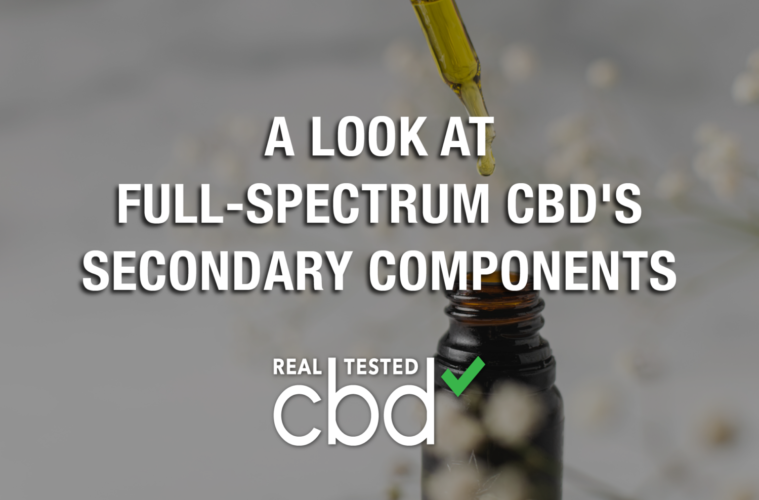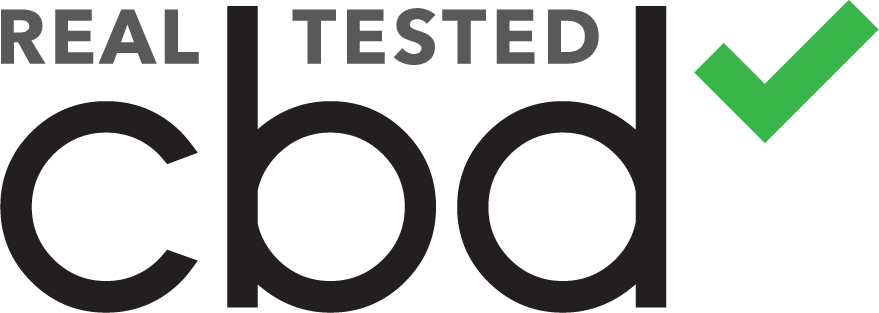This article was originally published on Real Tested CBD. To view the original article, click here.
Everyone knows that CBD oil is a hot supplement, but full-spectrum CBD oil may be the “hottest” product in the hemp market. Fans of full-spectrum CBD claim it has remarkable potency compared with other hemp extracts. Even though full-spectrum CBD oil is “less-refined” versus broad-spectrum or CBD isolate, it has unique properties that have got many consumers talking.
The research into full-spectrum CBD may be limited, but there’s no denying its recent popularity. Customers interested in CBD oils should know what sets full-spectrum CBD oil apart before deciding whether it’s the right fit for them.
Besides CBD, What’s In Full-Spectrum CBD Oil?
Like any other CBD extract, full-spectrum CBD oils have the highest concentration of CBD. However, when you compare full-spectrum CBD with broad-spectrum or CBD isolate, it has comparatively less CBD versus secondary hemp compounds.
True to its name, full-spectrum CBD has a “full” range of natural plant compounds from hemp flowers. Most notably, customers will notice there’s ≤ 0.3 percent delta-9 THC in their full-spectrum CBD extract. In fact, this THC percentage is the key feature that separates full-spectrum from THC-free broad-spectrum CBD.
But it’s not just delta-9 THC that you’ll find in full-spectrum CBD oils. For instance, these hemp extracts often contain significant traces of non-psychoactive cannabinoids like CBG and CBC. There are also dozens of aromatic hemp terpenes, including myrcene, beta-caryophyllene, and limonene.
Lastly, full-spectrum CBD oils could have traces of natural plant antioxidants and flavonoids. Some brands even include traces of chlorophyll from the hemp plant in their final product.
Why Would Someone Take Full-Spectrum CBD Oil?
To understand full-spectrum CBD oil’s popularity, we must review the “entourage effect.” Although the entourage effectremains a working hypothesis, it’s the primary reason people choose full-spectrum CBD over other products.
The entourage effect refers to the complex interrelationship of natural hemp compounds. Supposedly, when you combine the cannabinoids, terpenes, and antioxidants in raw hemp plants, it has the most substantial effect. These chemicals are thought work together to heighten the user’s experience.
Although there’s debate whether the entourage effect is valid, there’s no question secondary cannabinoids and terpenes have unique effects. Also, most studies suggest these compounds can affect each other in surprising ways.
Most notably, CBD appears to dampen THC’s connection to CB1 receptors, which reduces a strain’s psychoactivity. There’s also some evidence that terpenes like beta-caryophyllene land on CB2 receptors to reduce the sensation of anxiety.
So, while the “entourage effect” may be a debatable theory, people who use full-spectrum CBD get more exposure to secondary hemp compounds. This may mean full-spectrum CBD oils have more substantial effects even at lower doses.
Will The THC In Full-Spectrum CBD Oil Make Me “High?”
THC may only measure ≤ 0.3 percent in full-spectrum CBD oils, but it’s the defining feature. Understandably, since delta-9 THC is associated with weed’s “high” sensation, new customers are concerned full-spectrum CBD has psychoactive effects.
Honestly, since this delta-9 THC percentage is so low, it’s unlikely it would have any noticeable “high” effect. Also, remember that CBD blocks THC from landing on the brain’s CB1 receptors. So, not only is the total THC low, the high amount of CBD will cut THC’s intensity.
Still, some people are extra sensitive to THC. If you fear you’re allergic to THC, you may experience adverse side effects like a headache while using full-spectrum CBD. In these cases, you should consider THC-free broad-spectrum or CBD isolate items.
Also, employees may want to stay away from full-spectrum CBD oils if they have an upcoming drug screening. Even though the delta-9 in full-spectrum products is minimal, it may remain in a person’s bloodstream for days after ingestion.
Also, delta-9 THC breaks down into dozens of metabolites, each of which may end up on a standard urinalysis. Employees should only use THC-free CBD products a few days before scheduled drug exams to be on the safe side.
Verify Your CBD Oil’s “Spectrum Status” With Real Tested CBD
No matter what a CBD company claims, you never know what’s in their products till you see a third-party lab screening. Unfortunately, there are many reports of full-spectrum and broad-spectrum CBD oil containing well over the legal limit of ≤ 0.3 percent THC. You must request valid Certificates of Analysis from a CBD manufacturer to get a clear picture of your preferred hemp extract.
To help customers figure out which CBD companies are reputable, Real Tested CBD scans all of the biggest hemp brands using cutting-edge technology. You can find all of our unbiased reviews on CBD and delta-8 THC items on our website.
Related: Check out our CBD Product Guides here.
Advertising disclosure: We may receive compensation for some of the links in our stories. Thank you for supporting Irvine Weekly and our advertisers.


